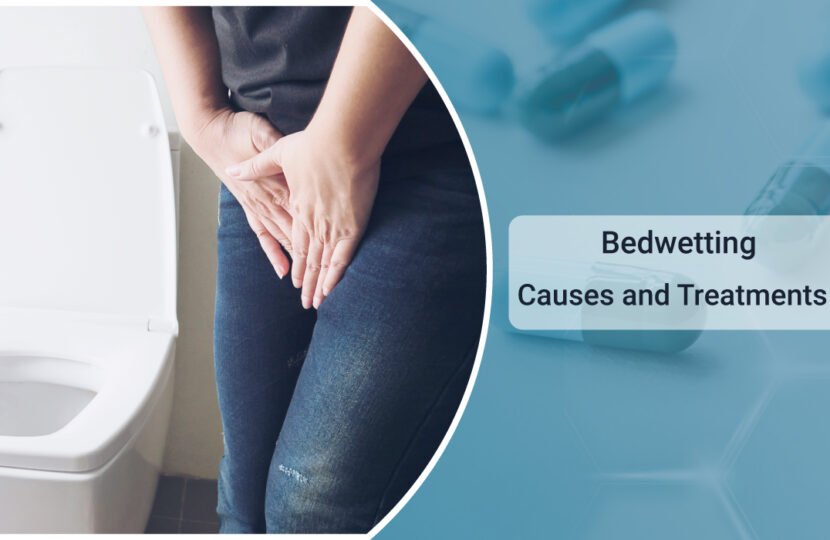Something only seems to become a worrisome condition when it is categorized as an unusual act. Bedwetting is very common but till a specific age and in a specific amount. When the act of urination becomes an involuntary act in sleep for someone, the first thing we must inquire is about the age of the person. If you are informed of the age of the person and it is at where you can easily expect that person to have control over urination, they are suffering from nocturnal enuresis or bedwetting.
Having control over urine is not only a matter of going through training. If you are not trained well for the toilet, your instincts will guide you to have urine control. Before the age of 8 years, bedwetting is not seen as a condition but above that age, one must seek medical awareness for their children.
The right time to seek medical assistance for bedwetting
When a person grows up, urine control can have three possibilities:
- The grownup child gains control over urine on their own
- Some grownups may need some assistance in bladder control
- The unusual bedwetting may be the symptom of some unknown disease
To avoid the damage that can be done if the third possibility is true, one must know when to consult a doctor. Here are the conditions when you must consult a doctor for your child.
- Feeling pain while urinating
- Coloration of urine
- Prominent snoring
- If the child wets the bed after being in control for a few months
- If the above 8-year-old child wets the bed
Possible causes of bedwetting
The causes of bedwetting can range from physical to psychological. Some of them are untreatable by birth while others can be treated. Some of the causes of bedwetting are as follows:
- Benign Prostatic Hyperplasia
- Urinary tract infection
- Reduced bladder size
- Recover after stroke
- Sleep apnea
- Uneasy mental state
- Constipation
Most common causes of bedwetting:
- Diabetes: Because of less glucose production, the patient’s urine becomes overproduced causing bedwetting.
- Hormonal imbalance: The imbalance of ADH disturbs the control of individual overnight urination causing bedwetting.
Who is at more risk of bedwetting?
- Both genders do experience bedwetting when they are at lower ages such as below 5 but boys tend to experience bedwetting even after they get a bit old
- If a child is born into a family which has a history of bedwetting, then the child is more likely to wet the bed. This is because genetics is an important factor to play role in bedwetting
- A common psychological condition known as ADHD tends to affect children to cause bedwetting. The actual case of this is not completely known.
Prevention of bedwetting
- Intake of fluids is necessary but you should try to fulfill your bodily fluid demand before dinner.
- Cut down your caffeine intake.
- Avoid alcoholic beverages
- Create a stress-free environment for your children to reduce bedwetting by them
- Consult a doctor if your child is bedwetting after being dry for 6 months
- Do not take punishing majors for bedwetting by your child
- Do not avoid making your child understand their responsibility to be in control of urination
Treatment for bedwetting
Sometimes bedwetting can be a result of an underlying medical condition. In these cases, the patient must be given full medical attention as bedwetting can be a symptom of many threatening medical conditions. The treatment mainly used for controlling bedwetting is medications and the most common medications for this use are:
- ADH increasing medications
- UTI treating antibiotics
- Medicines to reduce irritated bladder
- Medications to treat prostate enlargement
Conclusion
Bedwetting is an unintentional passage of urine while sleeping after the age at which bladder control is reasonably expected. If by ten years of age, a child is not able to stay dry at night, he/she could be suffering from any of the above-mentioned causes of bedwetting. Then visit your nearby nephrologist or kidney specialist and get perfect solutions for bedwetting. For further information contact Alfa Kidney Care.


